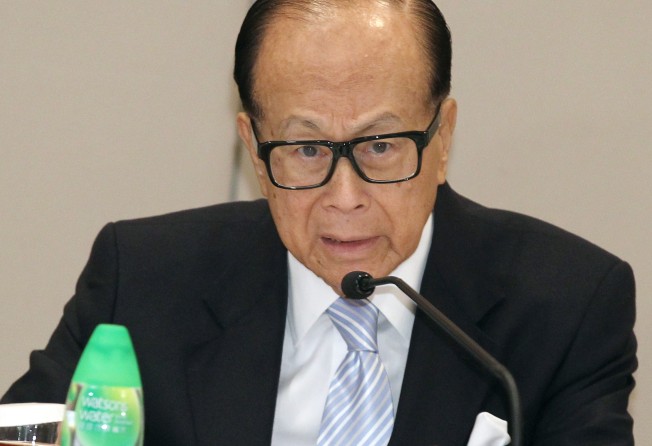Online criticism of Li points to break-up with leadership

Luo Tianhao must be shocked by his quick rise to fame. The little-known blogger became a celebrity overnight with a commentary bashing Li Ka-shing for exiting China.
Shocked because he has been saying "exactly", more like literally, the same thing for the past five years, but no one paid any heed.
The self-proclaimed strategist first criticised Li and other Hong Kong tycoons in 2010 on his Sina.com blog.
Luo said they owed their success and mammoth fortunes to political blessings from Beijing, their rip-offs had beggared the majority of Hongkongers, and it was payback time.
Every year, he would repost the same article with a new introduction and headlines such as "Wooing tycoons at Hong Kong's expense" and "No need to run Li Ka-shing!"
On August 7, Luo performed the annual ritual under a sexier headline: "Don't let Li Ka-shing get away with it." Again, that generated little traffic to his blog.
His world changed on September 12. The Liaowang Institute, a think tank affiliated with state news agency Xinhua, published his article, and the rest was history.
What ground-breaking argument did Liaowang see in the rusty blog of an obscure commentator that it did not see years ago?
Why was it carried within days of Li announcing his latest restructuring, which will result in the disappearance of the last Hong Kong-incorporated listed entity in his empire?
Could it be the result of bad editorial judgment? After all, the article was removed from the Liaowang website within hours.
Securities Times, a news outlet under the People's Daily, also issued a far less militant editorial headlined "Let Li Ka-shing leave as he pleases - the sky won't collapse".
However, as always, the more telling thing is not what Beijing has done, but what it has not.
The editorial with the more accommodating tone did not appear until three days after Liaowang published Luo's inflammatory article.
In fact, for almost a week now, journalists and internet users in China have not been barred from "stir-frying" - jargon often used by state propaganda officials - the attack on Li. They have been allowed to do and say whatever they want with it.
Popular website Sina.com has been running a poll asking whether the tycoon be stopped from moving his money out of China. More than 41,000 have cast their votes, with the yes and no camps each getting 41 per cent of them.
Internet television programmes have looped around the clock detailing the debate as well as how Li has sold almost 100 billion yuan (HK$121 billion) worth of mainland and Hong Kong assets within just three years.
In the meantime, another well researched piece by a blogger accusing Li of securing "cheap" land in Shanghai and selling it high without doing much meaningful development has been widely circulated online.
The debate has remained among the top three most-viewed online topics, ranking after the jailing of big-spending socialite Guo Meimei for running an illegal casino and the arrest of a top securities regulator. Guo gained notoriety by claiming the head of the China Red Cross was her sugar daddy and paid for her extravagant lifestyle.
This snowballing storm of commentary surrounding Li would not have been possible without top-level blessing in the mainland's tightly controlled media.
Try to search for debate on the recent yuan reform or stock market intervention by the state in the mainland media. It will show just how rare such snowballing is.
It would be too simple, if not naïve, to call the Luo piece an editorial issue.
The political intent will never be known. What is clear is that the official tone, which used to argue that Li, dubbed Superman, was not leaving but trading, has changed.
Anyone with a computer or television in China now sees Superman quitting the country.
At the same time, the criticism of Li and other Hong Kong tycoons, which was kept within the corridors of power for the past few years, has now gone public.
It is a break-up between the current leadership and Li. Of course, none of that should have come as a surprise to the latter.